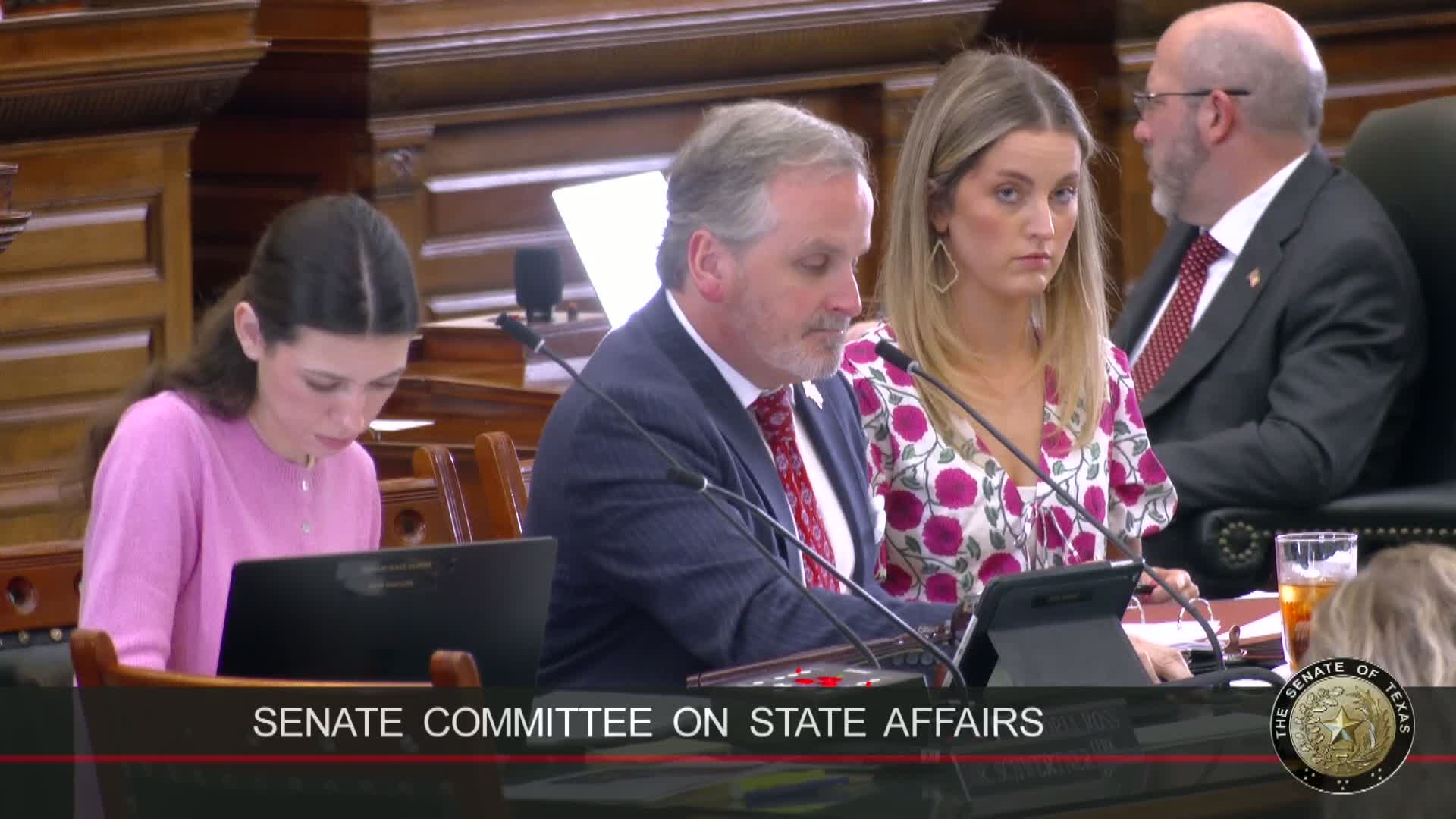Committee considers bill allowing 30‑06 signage to be admitted as evidence in civil suits against businesses
Get AI-powered insights, summaries, and transcripts
Subscribe
Summary
Senate Bill 82 (committee substitute) would allow a business’s decision to post or not post a 30‑06/30‑07 firearms sign to be admissible evidence in civil cases alleging serious bodily injury or death from criminal acts on the premises; supporters and gun‑rights groups testified and the bill was left pending.
The Committee on State Affairs reviewed a committee substitute for Senate Bill 82, which would create an evidentiary rule in civil lawsuits involving serious bodily injury or death arising from criminal acts on business premises.
Senator Hall, the bill’s author, said the substitute “provides liability protection for businesses that recognize the right of individuals to protect themselves,” and explained the change would allow a business’s decision not to post a 30‑06 or 30‑07 sign to be admissible as evidence in civil trials. Under the substitute, the fact that a business prohibited lawful handgun carry by posting such a sign “becomes admissible evidence in the civil case,” Hall said.
Committee members sought to clarify scope and consequences. Senator Birdwell asked whether the bill would apply to incidents occurring in private homes; Hall answered “No” and emphasized the substitute applies to civil suits involving businesses. Hall and other senators clarified the substitute does not automatically make a property owner liable; rather, it permits a jury to see evidence that the owner forbade lawful carry, and that evidence could be considered in determining liability.
Supporters from gun‑rights groups testified. CJ Grisham of Texas Gun Rights said the substitute is a “small business protection bill” that protects patrons who lack alternative retail options in rural communities. Gary Zimmerman, a licensed‑carry instructor, said the measure protects patrons’ right to self‑protection and cited examples of homeowners‑association meetings held at restaurants where signage forced patrons to disarm.
Witnesses and senators discussed interaction with other signage laws. The committee clarified the substitute does not affect 51% signage requirements tied to alcoholic beverage establishment licensing; that regulatory requirement remains distinct.
The committee opened invited and public testimony and closed it after several proponents spoke. No amendment vote or formal passage occurred; SB 82 was left pending.
The bill’s committee substitute, as described in the hearing, limits the change to civil actions and permits (but does not mandate) admissibility of signage evidence to a jury; it does not criminalize posting a sign. The committee recorded questions about potential second‑order effects and the boundary between private homes and businesses, but the author and supporters repeatedly stressed the business‑only scope.
No committee action (final vote) was taken; the bill remains pending.
